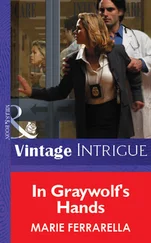SHE HAD DOZED, if not slept, too aware of Alban’s frailty and her own fears for the coming days. Half-waking thoughts had skittered all night, replaying Alban’s capture, replaying his impossible remove to Grace’s chambers below the streets. The vigilante woman had never shown any resources of the nature Margrit imagined necessary to steal two gargoyles from a rooftop in broad daylight, but when Grace came to fetch her in the morning, she shrugged off Margrit’s questions again, ending the conversation with a sharp, “Does it matter, lawyer? He’s safe enough now, isn’t he, and you don’t owe anyone for his safety. Count your blessings and let it go.”
Chastened, Margrit did so, and emerged into the city morning to the realization that dawn came much too late in April, at least if she wanted to shower, change clothes and get to work on time. Barely beyond the tunnel entrance, her cell phone sang a tune to tell her she had voice mail. Expecting the trial time to have been moved—probably up, making it unlikely she’d get to the office at all—she hit the call-back button and hurried down the street with the phone pressed to her ear.
The recorded mailbox voice told her the sole message had been left at 4:45 a.m. on Thursday, just a few hours earlier. Margrit resisted the urge to shake the phone; it wasn’t its fault she’d been hidden beneath the city, well out of reception range. At least the mailbox had picked up the crisp-voiced woman who said, “Ms. Knight, this is Dr. Jones at Harlem Hospital. A client of yours, Cara Delaney, has been injured and she asked that we contact you. We’d appreciate it if you came over.” The doctor left a number that flew through Margrit’s mind and disappeared under a range of concerns.
Foremost was the horrifying idea that a hospital would probably do blood work on the young selkie woman. Margrit had never considered how the Old Races dealt with injuries in the modern world, especially severe ones. Even with selkies numbering in the tens of thousands, it was unlikely they could litter enough hospitals around the world to keep their own secrets safe. For all that they’d interbred with humans, there had to be anomalies in a selkie’s blood, very likely curious enough to pique a physician’s interest.
It was only as she ran to the subway that worry for Cara’s injuries surfaced, both their severity and how they’d happened. The latter was too easy to guess: Cara was likely to have been down on the docks, part of the struggle between selkie and djinn. Gargoyles, Margrit remembered uncomfortably, calcified at dawn when they died in their human form. She had no idea if selkies might have some inexplicable conversion, too.
Her thoughts spun down the same lines no matter how many times she pulled them back. She was relieved to leave the subway and hail a cab, though staring out the window at passing traffic did no more to distract her than looking at her reflection in black stretches of subway tunnel had.
A matronly woman at the hospital gave the visiting-hours sign a significant glance when Margrit asked about Cara. Margrit said, “I’m her lawyer,” as though the words were a magic pass, and with another sour look at the sign, the woman directed her toward the emergency department. Margrit nodded her thanks and hurried there to catch the first unharried-looking nurse she saw and asked, “Dr. Jones?”
The nurse gave her a pitying look, and spoke clearly, as though Margrit wasn’t expected to understand. “I’m a nurse. Dr. Jones went home at seven. Dr. Davis took over her patients.”
Color heated Margrit’s cheeks. “No, I know you’re a—” She drew a breath and held it, then made herself let both it and the explanation go, instead putting on an unintentionally tight smile. “Dr. Davis, then, please? Where would I find her?”
“He,” the nurse said in much the same tone of pity, and pointed, “is down the hall. The good-looking one.”
“Thank you.” Margrit, fully expecting to have to find someone who would be more specific than the good-looking one, turned to look where the nurse had pointed. Halfway down the hall stood a tall man in a doctor’s coat, surrounded by half a dozen clearly doting interns. Margrit shot a sideways glance around the ward, looking for a television camera. The man had a perfect profile, so flawless it seemed unlikely he could be equally handsome face-on.
He was, with dark eyes and a broad, white smile. Margrit edged her way through the interns, hoping her voice didn’t squeak as she asked, “Dr. Davis? I’m Margrit Knight, Cara Delaney’s lawyer. She asked for me.”
Davis dismissed all but one of the interns as he offered Margrit a hand. “Dr. Jones hoped you might be coming. Miss Delaney’s going to be all right, but she’s concerned about her daughter. We can check to see if she’s awake. This way, please.” He led her down the hall, Margrit swallowing a giggle of pure high-school giddiness. He wore a wedding band, and she hoped, for the good of the species, that he and his wife were planning on having a significant number of beautiful children. The wish felt startlingly ordinary and very human. A shiver of regret slipped through Margrit at recognizing it as such, as though she’d become something new and different herself.
A moment later, Davis pushed a room door open and ushered Margrit in. Young women lay in beds down the room’s narrow length, Cara in the one farthest away. She opened her eyes as Margrit entered, then gave a pained gasp of relief and pushed up on an elbow. “Margrit. You came.”
“Of course I did.” Margrit hurried down the room to pull a stool up beside Cara. Davis remained at the door, murmuring, “Not too long, please, Ms. Knight. My patient needs her rest.”
“Of course.” Margrit smiled over her shoulder at him, found herself gazing too long, and, blushing, looked back at Cara as the door closed again. “There can’t be anything people wouldn’t agree to do for him. Oh, my God. I think I could be paralyzed from the eyes down and if he said get up and do a salsa I would.”
Cara smiled faintly. “I guess he’s not my type. He said, ‘Feel better,’ but I don’t yet.”
“Damn.” Margrit took Cara’s hand cautiously. “What happened, Cara? Are you all right?” She wrinkled her nose as she asked the question; all right depended on how it was defined. Cara was alive, but the delicate lines of her face were swollen and bruised, making dark blots of her eyes. Her right arm was in a cast, and the stiffness of her body suggested more restraining bandages in other places.
“I got shot.” The flat statement struck Margrit as badly out of place, coming from a selkie. Mundane humans got shot, not mystical Old Races. Cara freed her hand from Margrit’s and drifted her fingers to below the ribs on her left side. “In the back, above the kidney.”
“Who …? Not a …?” Margrit didn’t want to voice the word djinn aloud, but Cara, understanding, shook her head with a faint smile.
“No, we haven’t been trying to kill each other. We have a common enemy.”
“Humanity.” Margrit ground her teeth. “So it was one of us who shot you.”
“I didn’t see who it was. But I was too far from the water to escape, so an ambulance came and picked me up. I have to get out of here, Margrit. I have to.” Passion left the slight woman and she sank back into the bed, even her bruises graying with exhaustion. “I would heal faster if I could transform. It helps put things to right.”
“Cara, the only way I can think of to get you out of here is to ask Daisani to have you transferred to a private hospital.”
“I don’t want to owe him anything.”
“I know, but you also don’t want anybody looking at your blood work too closely. Do you even know what they’d find?”
Читать дальше










